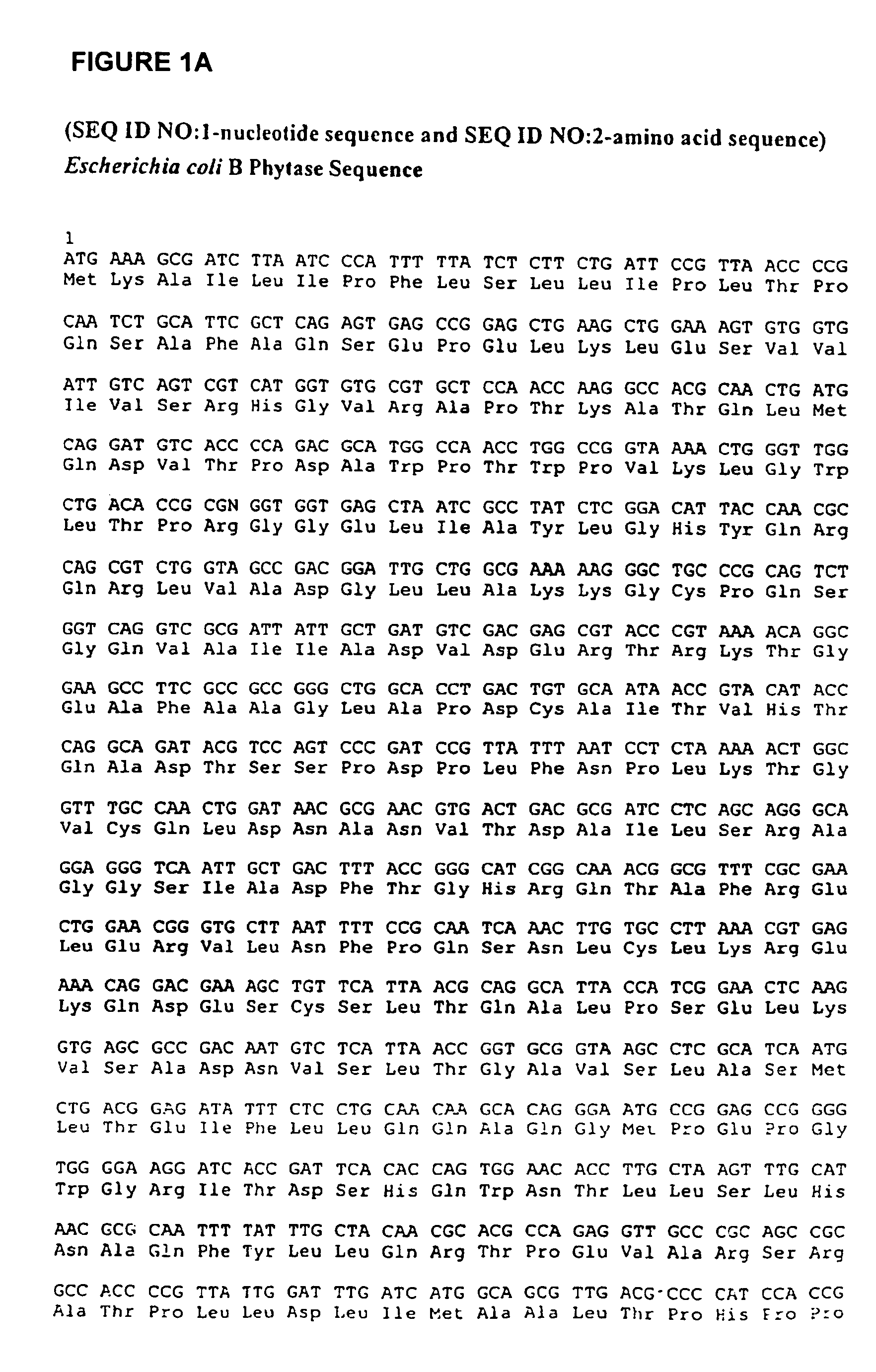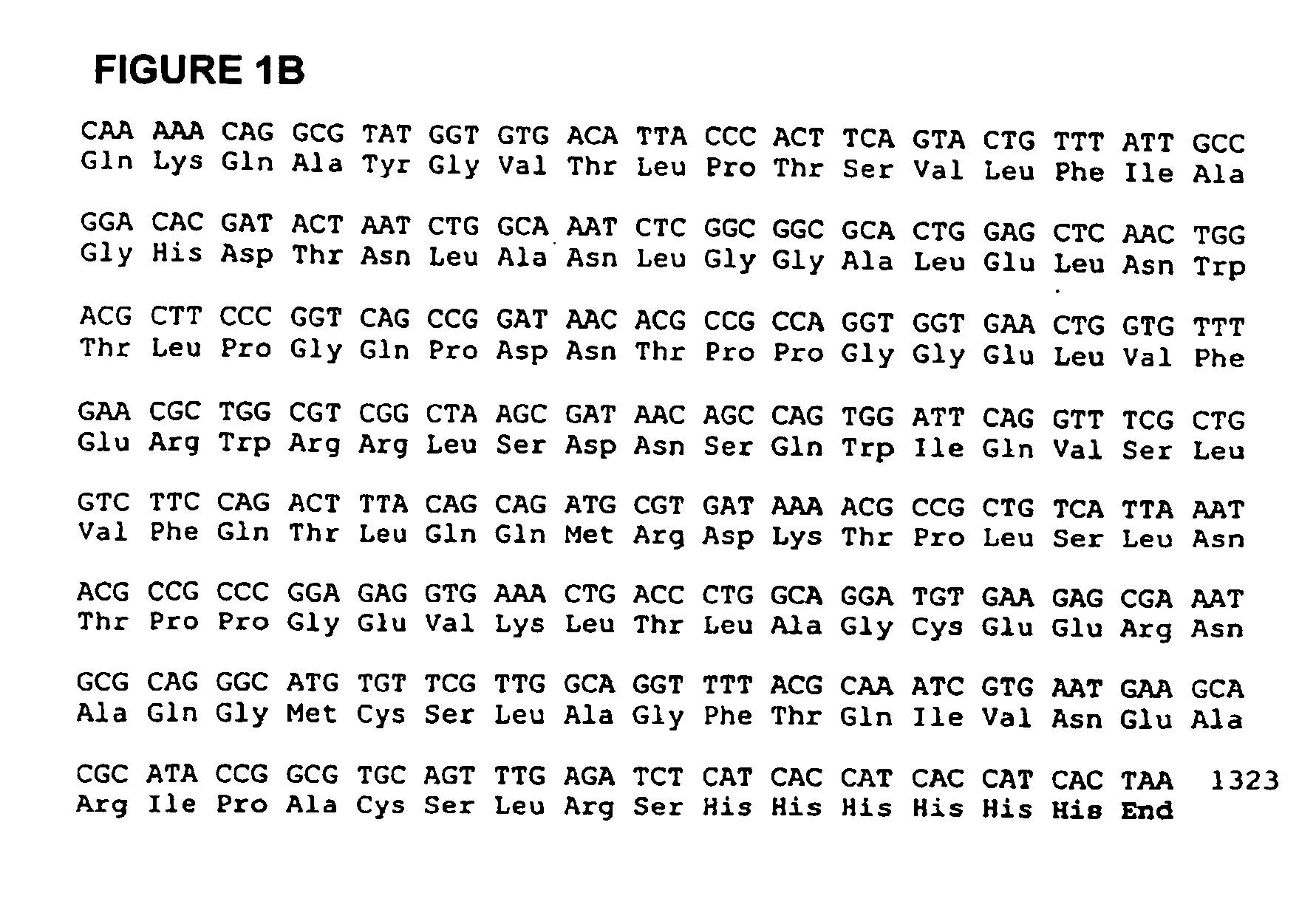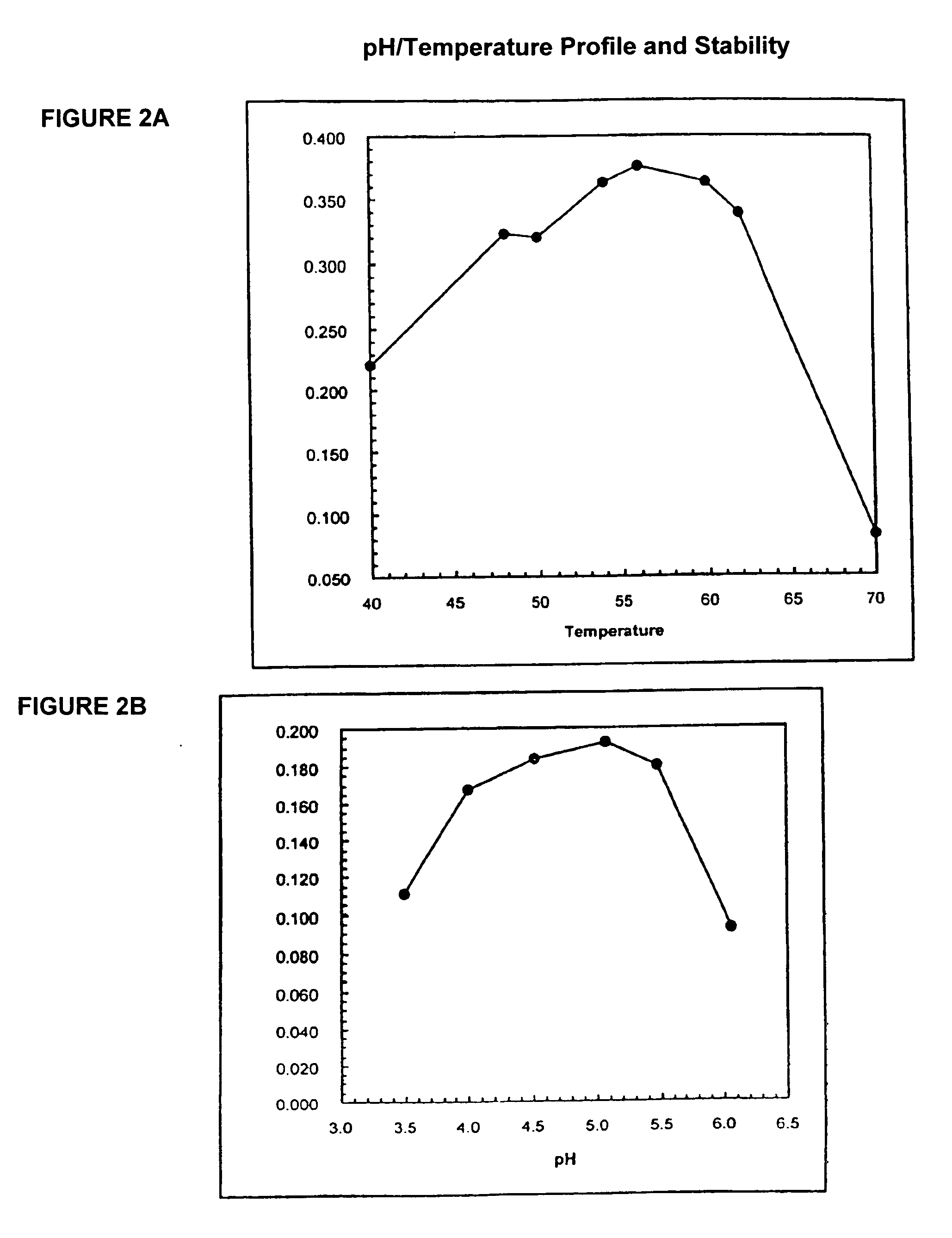Phytases, nucleic acids encoding them and methods of making and using them
a technology of nucleic acids and phytases, applied in the field of newly identified and newly engineered polynucleotides, polypeptides, can solve the problems of many problematic burdens, inability to efficiently utilize phytate-associated minerals, and species of farmed organisms, so as to improve the nutritional value of phytate-containing foodstuffs, improve the efficiency of phosphorous release, and improve the growth performance of organisms.
- Summary
- Abstract
- Description
- Claims
- Application Information
AI Technical Summary
Benefits of technology
Problems solved by technology
Method used
Image
Examples
example 1
Isolation, Bacterial Expression, and Purification of Phytase
[0509]E. coli B genomic DNA was obtained from Sigma (Catalog # D-2001), St. Louis, N.J.
[0510] The following primers were used to PCk amplify the gene directly from the genomic DNA:
(SEQ ID NO: 3)5′ primergtttctgaattcaaggaggaatttaaATGAAAGCGATCTTAATCCCATT;and(SEQ ID NO: 4)3′ primergtttctggatccTTACAAACTGCACGCCGGTAT.
[0511] Pfu polymerase in the PCR reaction, and amplification was performed according to manufacturers protocol (Stratagene Cloning Systems, Inc., La Jolla, Calif.).
[0512] PCR product was purified and purified product and pQE60 vector (Qiagen) were both digested with EcoRI and BglII restriction endonucleases (New England Biolabs) according to manufacturers protocols. Overnight ligations were performed using standard protocols to yield pQE60.
[0513] The amplified sequences were inserted in frame with the sequence encoding for the RBS. The ligation mixture was then used to transform the E. coli strain M15 / pREP4 (Qi...
example 2
Thermal Tolerance Assay
[0585] The wild type appA from E. coli (strain K12) and a mutagenized version designated 819PH59 (SEQ ID NO:9 and 10) were expressed in E. coli and purified to homogeneity. In the thermal tolerance assay, 100 uL of 0.01 mg / mL of protein in 100 mM MOPS / pH 7.0 was heated to the indicated incubation temperature for 5 minutes in an RJ research thermocycler. Upon completion of the 5 minutes at the incubation temperature, the samples were cooled to 4° C. and incubated on ice. An activity assay was run using 40 uL of the enzyme solution in 1.5 mL of 100 mM NaOAc / 4 mM phytate / pH 4.5 at 37° C. Aliquots of 60 uL were withdrawn at 2 minute intervals and added to 60 uL of the color developer / Stop solution of the TNO assay. Clearly, the modified enzyme, SEQ ID NO:10, containing 8 amino acid changes, is tolerant to temperatures greater than the wild-type enzyme. See FIG. 3.
example 3
Stability of Phytase Enzyme in Simulated Digestibility Conditions
[0586] The percent residual activities (based on initial rates) of the in vitro digested E. coli K12 and the nonglycosylated 819pH59 phytase were plotted verses time. A standard concentration of simulated gastric fluid containing 2 mg / ml NaCl, 6 M HCl and 3.2 mg / mL pepsin was prepared as described. The pH of the solution was about 1.4 and was not adjusted. The in vitro digestibility assay was performed by adding 1:4 (vol:vol) of phytase to digestion solution and immediately incubating at 37° C. to initiate the digestion reaction. Aliquots of the digestion reaction mixture were removed at various time intervals and assayed for residual phytase activity using the TNO assay. Each of the assays was performed at least twice. An exponential curve with the equation y=Ae−kt was fit to the data. The half lives of the proteins were determined using the equation t 1 / 2=In 2 / k. The half-life of the E. coli K12 phytase was only 2.7...
PUM
| Property | Measurement | Unit |
|---|---|---|
| Composition | aaaaa | aaaaa |
Abstract
Description
Claims
Application Information
 Login to View More
Login to View More - R&D
- Intellectual Property
- Life Sciences
- Materials
- Tech Scout
- Unparalleled Data Quality
- Higher Quality Content
- 60% Fewer Hallucinations
Browse by: Latest US Patents, China's latest patents, Technical Efficacy Thesaurus, Application Domain, Technology Topic, Popular Technical Reports.
© 2025 PatSnap. All rights reserved.Legal|Privacy policy|Modern Slavery Act Transparency Statement|Sitemap|About US| Contact US: help@patsnap.com



